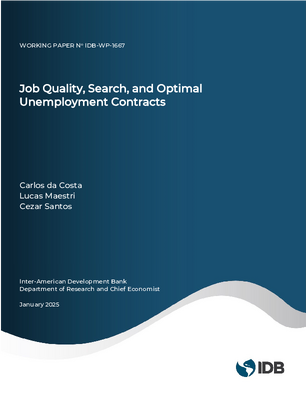Job Quality, Search, and Optimal Unemployment Contracts
Date issued
Jan 2025
Subject
Labor Force;
Labor;
Unemployment Insurance;
Small Business;
Tax Rate;
Saving
JEL code
H21 - Efficiency • Optimal Taxation;
J64 - Unemployment: Models, Duration, Incidence, and Job Search
Category
Working Papers
When searching for employment, workers consider non-wage job characteristics, such as effort requirements or amenities. We study an environment where unemployed workers search for jobs of different quality in a labor market characterized by directed search. In equilibrium, firms are more likely to post vacancies for low-quality jobs, as these are more profitable. Hence, high-quality jobs are hard to come across. The non-observability of these employment contracts influences the optimal unemployment insurance (UI) program, leading to distortionary taxation. Calibrating the model to the U.S. economy, we find that non-observability of employment contracts results in faster declining UI benefits, steeper taxes upon re-employment, distortionary taxation, and a 10.5% costlier program than an observable contract scenario providing equal welfare.
NO



